~~ recommended by larrymotuz ~~
HUSAVIK, Iceland (AP) — Schools, shops, banks and Iceland's famous swimming pools shut on Tuesday as women in the volcanic island nation — including the prime minister — went on strike to push for an end to unequal pay and gender-based violence.
Icelanders awoke to all-male news teams announcing shutdowns across the country, with public transport delayed, hospitals understaffed and hotel rooms uncleaned. Trade unions, the strike's main organizers, called on women and nonbinary people to refuse paid and unpaid work, including chores. About 90% of the country's workers belong to a union.
Prime Minister Katrin Jakobsdóttir said she would stay home as part of the strike — “kvennaverkfall” in Icelandic — and expected other women in her Cabinet would do the same.
Iceland, a rugged island of around 380,000 people just below the Arctic Circle, has been ranked as the world’s most gender-equal country 14 years in a row by the World Economic Forum, which measures pay, education, health care and other factors
No country has achieved full equality, and there remains a gender pay gap in Iceland.
Tuesday’s walkout, running from midnight to midnight, was billed as the biggest since Iceland’s first such event on Oct. 24, 1975, when 90% of women refused to work, clean or look after children, to voice anger at discrimination in the workplace.
In 1976, Iceland passed a law guaranteeing equal rights irrespective of gender. Since then there have been several partial-day strikes, most recently in 2018, with women walking off the job in the early afternoon, symbolizing the time of day when women, on average, stop earning compared to men.
Iceland's chools and the health system, which have female-dominated workforces, said they would be heavily affected. National broadcaster RUV said it was reducing television and radio broadcasts for the day, and reported that only one bank branch in the country was open.
Gatherings on Tuesday were held across Iceland, the largest in Reykjavik, where much of the capital's center was closed to traffic and tens of thousands gathered on the grassy Arnarhóll hill for a rally.
Speakers listed grim facts about economic inequality and sexual violence in Iceland, ending by asking, “You call that equality?” The crowd thundered back: “No!”
“We have not yet reached our goals of full gender equality and we are still tackling the gender-based wage gap, which is unacceptable in 2023,” Jakobsdóttir told news website mbl.is. “We are still tackling gender-based violence, which has been a priority for my government to tackle.”
Jakobsdóttir's Cabinet is evenly split between male and female ministers, and nearly half of lawmakers in Iceland's parliament, the Althingi, are women.
But while women in Iceland have pushed or broken the glass ceiling to top jobs — from bishop to leaders of the national wrestling association — the lowest-paying jobs, such as cleaning and child care, are still predominantly done by women.
The work, essential to Iceland's tourism-dominated economy, also depends heavily on immigrants, who on the whole work longer hours and take home the lowest salaries. Around 22% of the female workforce is foreign-born, according to Statistics Iceland.
“Foreign women are more vulnerable,” said Alice Clarke, an artist and designer from Canada who has lived in Iceland for 30 years. “Hopefully what is being done today will help to change that."
Iceland's 1975 strike inspired similar protests in other countries including Poland, where women boycotted jobs and classes in 2016 to protest a proposed abortion ban. In Spain, women staged a 24-hour strike in 2018 on March 8, International Women’s Day, under the theme “If we stop, the world stops.”
Spain's acting equality minister, Irene Montero, said Tuesday that the 2018 strike was inspired by Iceland’s 1975 walkout and expressed full support for the latest protest.
___
Associated Press writers Jill Lawless in London and Ciarán Giles in Madrid contributed to this report.
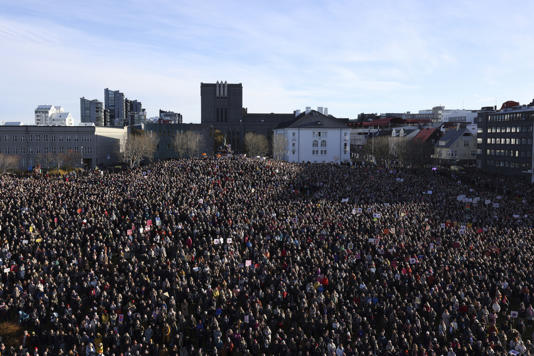
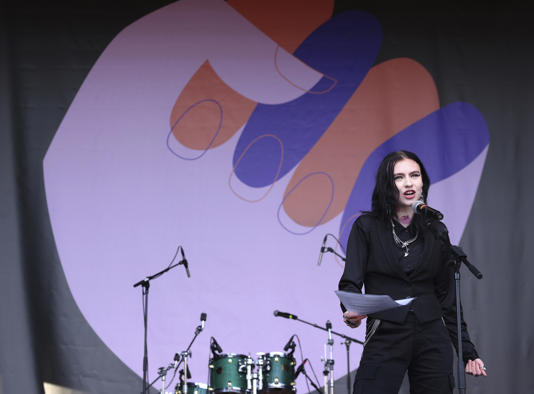
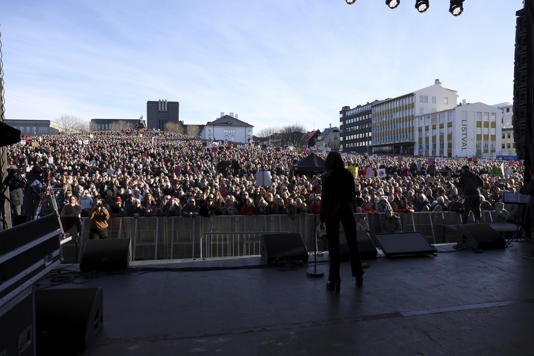
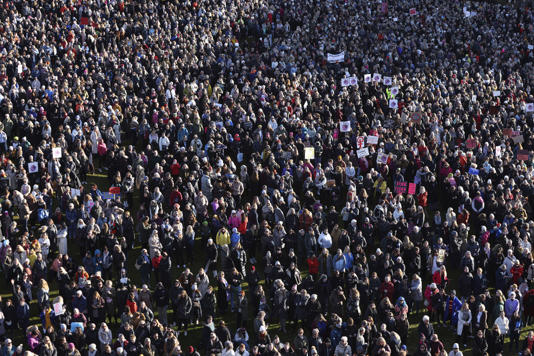
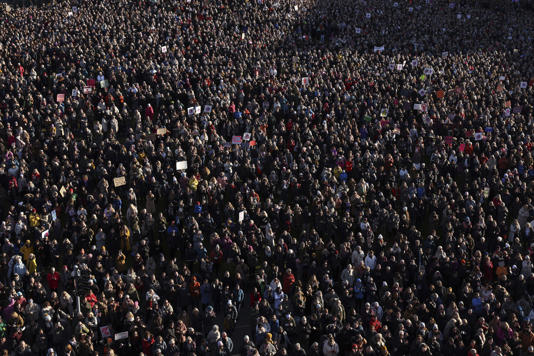

No comments:
Post a Comment